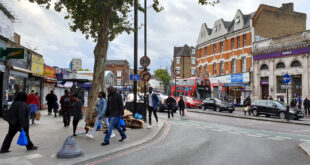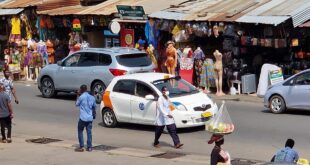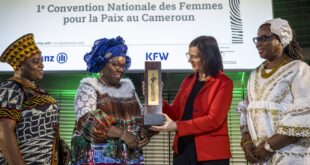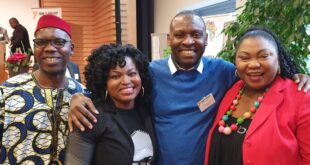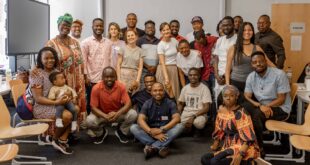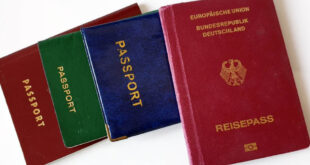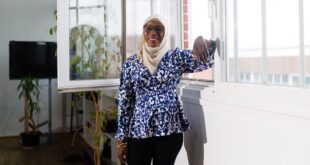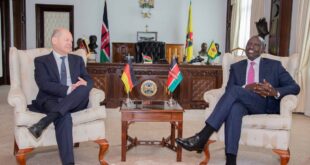In the second and concluding part of his report on Ghanaians in Germany, journalist, translator and community activist Sam Atsu Nove* writes on the changes in the patterns of Ghanaian migration in the past 40 years and the contribution of the Diaspora to Germany’s and their home country’s development.
———————————–
The economic crisis of the 1970s and 1980s in Ghana and migration to Germany
The international praise lavished on Ghana’s political and other performances within the African continent today is grossly exaggerated. One thing, however, is true: certain important fundamental structures were laid down by the founding fathers and mothers of the independent era which enabled today’s recovery from the near-total economic collapse of the 1970s and 1980s.
In spite of several destructive factors arising after the 1966 overthrow of Nkrumah, such as the successive kleptomaniac military regimes, detrimental World Bank intervention in 1983, chronic corruption and an unfortunate reappearance of ethnic allegiance in high places, it is true that Ghana is better off today than in those crisis years.

Comparing Ghana’s relatively improved position in the world and Africa today, something has happened between 1980 and 2017 to avert the looming national calamity. But not all Ghanaians could wait for a change for the better within the 30-year period.
Not only has the way to Germany for Ghanaian students in the face of the global changes since the 1980s become more difficult, the readiness of qualified Ghanaians to return home after studies in Germany has also waned noticeably.
READ ALSO: Ghanaians in Germany – 1950s till today (Part 1)
It was no longer impossible for qualified Ghanaians to find ways around the German migration and development policy laws and pick up qualified jobs here instead of returning home to become breadless “burgers” [burgers is a German term that was used for all migrants irrespective of the country to which they migrated. This was probably because of the conspicuous and ostentatious dressing and lifestyle of Ghanaian migrants who had returned home or were just visiting from Germany – Steve Tonah, 2007]. Moreover, the Germans also began to keep the Ghanaian professionals they urgently needed, in spite of “development policy” rhetoric.
Exactly around that same period in the 1980s, many young Ghanaians, some of whom already had the disappointment of internal migration from rural to the urban centres at home behind them, decided to turn their backs on their country which obviously could not feed them anymore, and go in search of greener pastures abroad.
So here we are in 2017, with some 50,000 Ghanaians in Germany, a few highly qualified and accordingly esteemed for what they offered or still offer Germany as doctors, professors or other professionals. There are the majority, some of them also qualified in different fields from home or even here, who cannot fulfil their dreams of a better life and have to struggle for survival like the majority of human beings worldwide.
Self-confidence of Ghanaians in Germany
Whatever their social or legal status, the diversified strategies of economic survival of Ghanaians in Germany is part of that proverbial African approach to life which always elicits admiration from visitors from other cultures to any part of the continent.
The way Ghanaians organise their lives here in Germany goes to confirm the claim that they do not consider themselves victims in the German economic system, in spite of discrimination and other negative experiences. After all, most Ghanaians came here voluntarily.
There might certainly be some who later regretted the impulsive decision to leave their relative security behind for an unknown future in Germany. But in such cases, since experience is the best teacher, they decide to face the brunt, once here.
Ghanaians are not only the largest sub-Sahara African national population group in Germany, they also dominate that conspicuous African presence in German public space. More than 75 per cent of the so-called Afro shops in Germany (where food items, cosmetics and other goods imported from Africa are sold) belong to Ghanaians.

A Ghanaian compatriot commented with a smile: “What do you want? After all, there is nothing we can do better here than ‘buying and selling’.” The only problem is that there are too few Africans for the shops to be able to thrive well, and most of the owners are unable to attract German customers through better and appropriate assortments of the goods they offer.
The majority of more than 100 African medical doctors practising privately or working in German hospitals and clinics are Ghanaian citizens, or what our German hosts call “Germans with a Ghanaian migration background”.
The control by Ghanaians over the African diaspora churches is also disproportionately high. A good number of the parishes manage to offer some sort of social and spiritual solace to their members, which is necessary since things are getting bad in some of the Ghanaian communities here.
The large number of charismatic Pentecostal parish communities of Ghanaian provenience, meanwhile, do not limit their sphere of influence to Germany but also expand extensively back to Ghana. It is rumoured that there is more money to make these days with the proclamation of the gospel in Ghana than in Germany.
Diaspora and contributions to Ghana’s development
One secret weapon the German development agencies seem to have discovered recently (!) against brain-drain and underdevelopment is an increased effort to support African diaspora communities to contribute effectively to the development of their home economies. And Ghanaians are on their list.
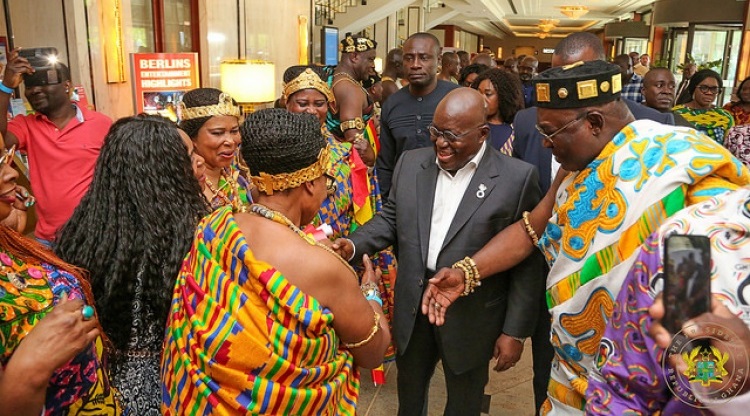
As far as Ghanaians in Germany are concerned, however, there is nothing new about close involvement in the social, cultural and economic life at home from abroad. Most Ghanaians in Germany with secure residence, including German-Ghanaians, shuttle regularly, as a principle, between the two countries either on business or for family reasons. Ghanaian artists from the “burger highlife” music scene, for instance, are just as popular in Ghana as in Germany.
If Germany wants to extend its longstanding involvement in Ghana’s political and economic affairs to the Ghanaian diaspora in Germany, they can start doing it properly by helping the Ghanaian diaspora here to achieve much-needed political empowerment. That empowerment should enable the Ghanaian diaspora to influence and monitor contracts and bilateral agreements between Germany and Ghana. On that basis, contracts agreed upon are sure to benefit the two countries because the diaspora expertise will ensure that they are not one-sided.
* This article, originally published in August 2017, was updated on 10 July 2020. The author, Sam Nove, who was born on 21 September 1947 in Agotime-Kpetoe district of the Volta Region of Ghana, died on 9 March 2020 in Berlin, Germany. A Pan-Africanist and passionate promoter of Ghana’s traditions and culture, Nove was a pioneer journalist focusing on the African community in Germany. The article is published in memory of Sam Nove
 THE AFRICAN COURIER. Reporting Africa and its Diaspora! The African Courier is an international magazine published in Germany to report on Africa and the Diaspora African experience. The first issue of the bimonthly magazine appeared on the newsstands on 15 February 1998. The African Courier is a communication forum for European-African political, economic and cultural exchanges, and a voice for Africa in Europe.
THE AFRICAN COURIER. Reporting Africa and its Diaspora! The African Courier is an international magazine published in Germany to report on Africa and the Diaspora African experience. The first issue of the bimonthly magazine appeared on the newsstands on 15 February 1998. The African Courier is a communication forum for European-African political, economic and cultural exchanges, and a voice for Africa in Europe.




